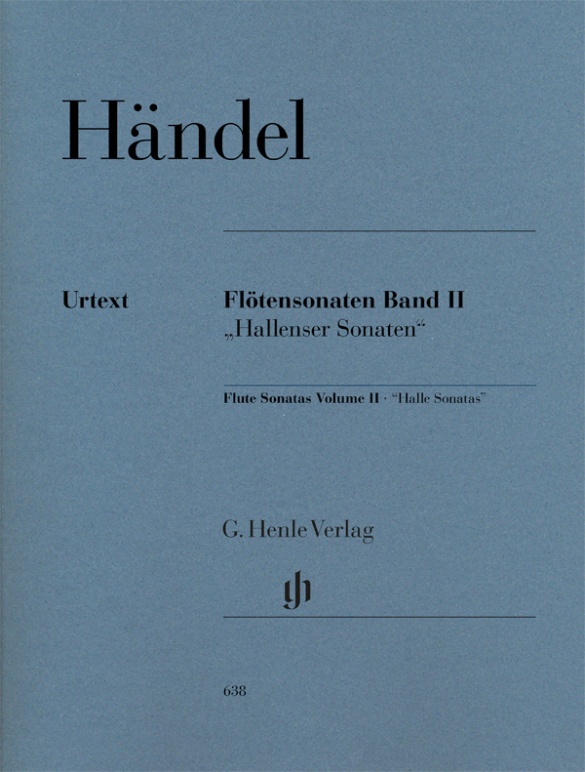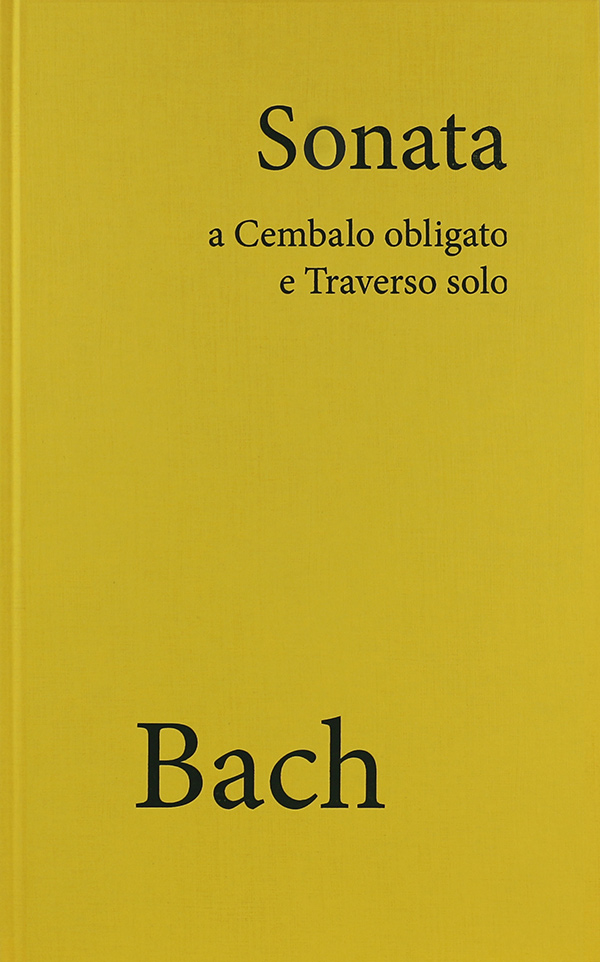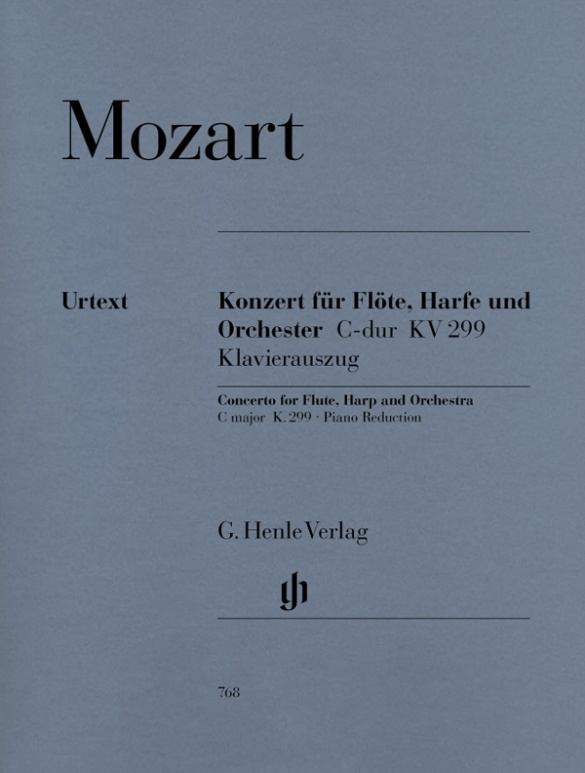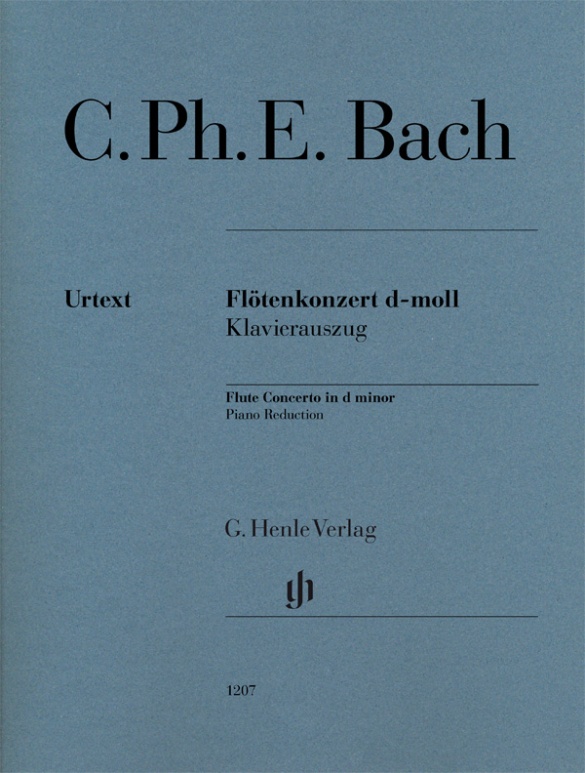

Carl Philipp Emanuel Bach
Flute Concerto d minor
Of Carl Philipp Emanuel Bach’s flute concertos, the one in d minor is by far the best known, even though its authenticity has been repeatedly doubted. A version of the same concerto for harpsichord and orchestra is “genuine C.P.E.” and this has always been regarded as the original version. An in-depth study of all source findings does, however, suggest that Bach composed the flute version first. Our editor, the flautist András Adorján, is thus able to present a musical text in which many transmission errors have been eliminated. The edition is rounded off by a preface from the C.P.E. Bach specialist Wolfram Enßlin.
Content/Details
About the Composer
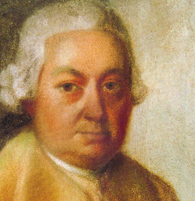
Carl Philipp Emanuel Bach
He is primarily famous for his music for keyboard instruments and is regarded as the most important composer of sonatas (approximately 150) in the mid eighteenth century. His self-image as a composer is in line with the aesthetic of the genius. His musical idiom is characterized by a “speaking” disposition and by moments of surprise.
| 1714 | Born in Weimar on March 8; second surviving son from Johann Sebastian Bach’s first marriage. Musical education from his father; attends the Lutheran Latin school in Köthen, the St. Thomas School in Leipzig. Participates in the Collegium Musicum. |
| 1731 | Law studies in Leipzig. |
| 1734–38 | Continuation of law studies in Frankfurt an der Oder. Occasional compositions. |
| 1740–68 | Harpsichordist in Berlin at the court of Frederick II. |
| 1741 | Symphony in G major (Wq 173), his first. |
| 1742–44 | “Prussian” and “Württemberg” Sonatas. |
| 1753 | Treatise: “Essay on the True Art of Playing Keyboard Instruments” (First part; second part in 1762) |
| 1758 | Publication of “Professor Gellert’s Sacred Odes and Songs” (Second collection in 1764) |
| 1760 | Publication of “Six Sonatas for Keyboard with Varied Reprises.” |
| 1768 | He succeeds Telemann as music director and cantor at the Johanneum Latin school in Hamburg. Composes liturgical music (cantatas) as well as instrumental works (symphonies, concerti, chamber music), large vocal works (Passion settings and oratorios), and occasional compositions for the city’s musical establishment. Organizes “Bach’s Private Concerts.” |
| 1775 | Oratorio “Die Israeliten in der Wüste” (“The Israelites in the Desert”). |
| 1779–87 | Publication of “Clavier Sonatas and Free Fantasies along with Divers Rondos […] for Experts and Amateurs.” |
| 1788 | Dies in Hamburg on December 14. |
About the Authors
András Adorján (Editor)
András Adorján was born in Budapest, grew up in Denmark and has been living in Munich since 1974. Dentist diploma in Copenhagen 1968. Flute studies with Aurèle Nicolet and Jean-Pierre Rampal. Laureat of international flute competitions and principal flutist of important european orchestras.
From 1987 professor in Cologne, since 1996 in Munich. With more than 100 recordings and as editor of a unique and extensive encyclopedia „Lexikon der Flöte“ he is today one of the most prominent flutists of his generation.
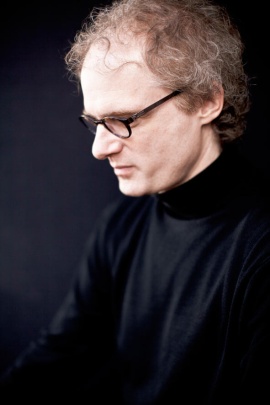
Jan Philip Schulze (Piano reduction)
Prof. Jan Philip Schulze received his piano education at the Musikhochschule in Munich and at the Tschaikovsky Conservatory in Moscow. He began his varied international career by winning awards at competitions in Italy, Spain and South Africa.
As a lied accompanist he has regularly given concerts with Juliane Banse, Annette Dasch, Rachel Harnisch, Dietrich Henschel, Jonas Kaufmann and Violeta Urmana; performing in the Berlin Philharmonic Hall, the London Wigmore Hall, the Salle Pleyel in Paris, the Auditorio Nacional in Madrid, in Tokyo, at La Scala in Milan, as well as at the festivals in Lucerne, Salzburg, Edinburgh, Munich and Schwarzenberg. Schulze is also interested in contemporary music, and has, for example recorded all of Hans Werner Henze’s Works for Piano, as well as given premières of concertos by Christoph Staude (with the Munich Philharmonic), Dror Feiler (with the Bavarian Radio Symphony Orchestra) and Johannes Schöllhorn (with the WDR Symphony Orchestra). Since 2004, Jan Philip Schulze has been Professor for “Liedgestaltung” at the Music Conservatory in Hannover.
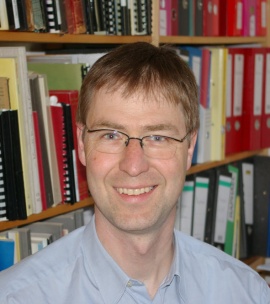
Wolfram Enßlin (Preface)
Dr. Wolfram Enßlin read musicology and medieval and modern history in Tübingen, Bologna and Heidelberg. Following research spells in Rome and Venice, he did his doctorate on Ferdinando Paër. He worked on the revision of the Beethoven Catalogue of Works “Kinsky-Halm” for two years as an external editor; since 2003 he has been an associate at the research project Bach Repertorium, and since 2009 he has been Head of Research there (Katalog der Bach-Quellen der Sing-Akademie zu Berlin; currently preparing the “Thematisch-systematisches Verzeichnis der Werke Carl Philipp Emanuel Bachs. Die Vokalwerke”).
His primary research interests include the younger members of the Bach family (in particular Carl Philipp Emanuel Bach and Johann Christian Bach) as well as Italian Opera between 1770 and 1830.
Product Safety Informations (GPSR)

G. Henle Verlag
Here you can find the information about the manufacturer of the product.G. Henle Verlag e.K.
Forstenrieder Allee 122
81476 München
Germany
info@henle.de
www.henle.com
Bei der Redaktion des Notentextes wurden von András Adorján alle Quellen berücksichtigt, sodass jetzt ein einwandfreier Notentext in einer hervorragenden Notengrafik vorliegt. Für alle, die sich mit diesem Konzert beschäftigen, gibt es zu dieser Neuausgabe derzeit keine Alternative.
Tibia, 2016Magnifique édition d'un élément majeur du répertoire de la flûte
Traversières, 2015Édité en version Urtext par András Adorján, préfacé par Wolfram Enßlin, avec une réduction de piano de Jan Philip Schulze, le concerto publié selon la manière habituelle la plus soignée possible des éditions Henle est le Concerto en ré mineur H 484.I (Wq 22)
Tempo flûte, 2015Henle`s piano reduction (arrangers please note, here and throughout) is most ingenious in preserving the finale`s repeated semiquavers.
Music Teacher Magazine, 2017recommendations
autogenerated_cross_selling
Further editions of this title


